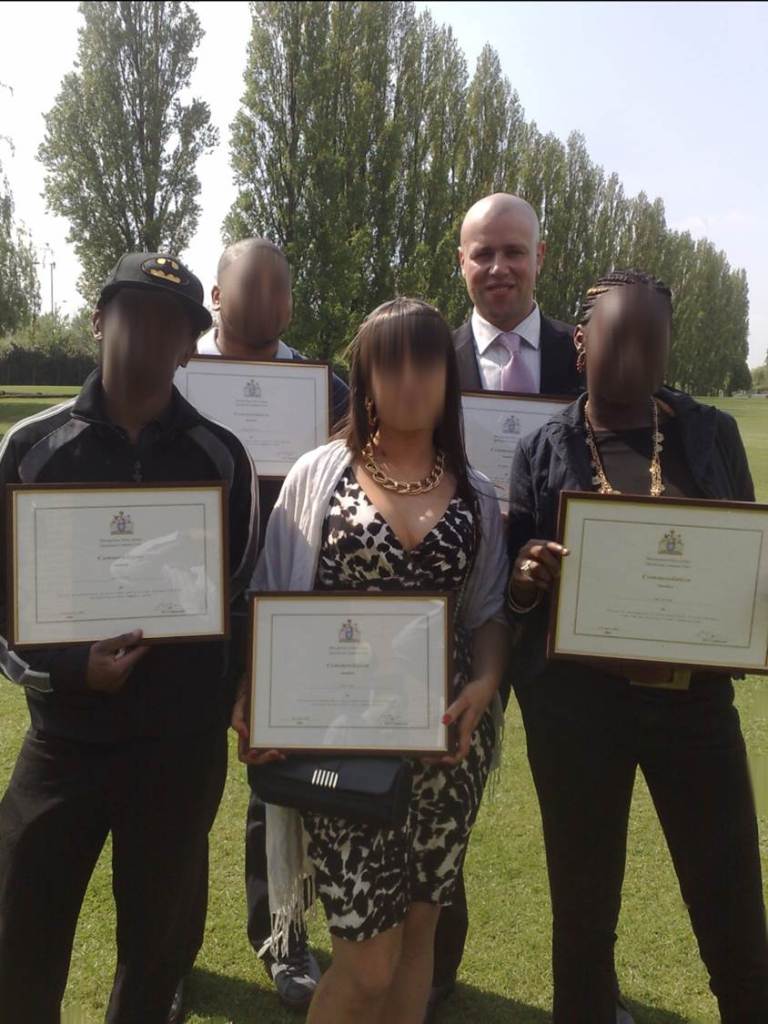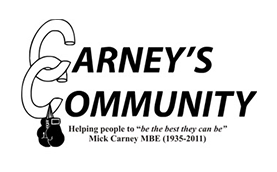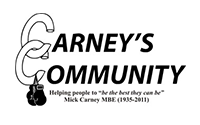George has many other young people who wanted to be involved on this project but who, he felt, were not yet ready to be able to make it a success. His aim now is to dedicate more of his time to these young people so he can help them to put their offending behaviour behind them and develop into dignified and valuable members of society and their local communities.
George Turner has worked on a variety of Government programmes with numerous persistent young offenders whose convictions have included robbery, GBH and murder. These programmes are typically limited to a fixed period (usually around 6 months). However most of these people needed further support when George’s official intervention ended, but funding for this was not available. Despite this, George often continued to support some of them, and in some cases, has maintained consistent contact over a period of 10 years. This extended support has enabled a few of these young offenders to turn their lives around.
George has repeatedly tried to get these young people work in the youth sector with various London boroughs. However he has encountered considerable resistance because of the authorities’ reluctance to take the risk. This is a constant problem as many employers are unwilling to provide work opportunities for young offenders.

In March 2008, George was asked by a Police Community Support Officer (PSCO) to deliver some gang and crime prevention workshops in some of the local schools in Acton. Instead, George suggested that the workshops should be delivered by a group of young people, with whom he had worked. They had succeeded in turning their lives around but were now struggling to find work because of their previous convictions. George agreed to vouch for them and support them in setting up and delivering the workshops. The Acton police were keen to take this up, particularly as this solution was offered at no cost.
The four young people George had in mind were aged 22 to 24 (two males and two females) and he had known them for 10 years. Three of them had spent substantial time in custody and all of them had gang affiliations and had been, at one time, the most persistent offenders in a local London Borough. George had maintained regular contact with them throughout the time he had known them and he had tried to support them on housing, employment and educational issues.
When George met with the four and discussed the idea with them they were keen to take up the opportunity and “give something back” to society. Working together, they produced a list of what they wanted to deliver and what could, and could not, be included. George attended the sessions with the group but he only introduced them, and they did all the talking. The first presentations were to pupils at Twyford High School in Acton. The police asked to extend this to Acton High School and Bollo Brooke Youth Centre.
The feedback was extremely positive from both the staff at these locations and from the young people themselves. Sarah Constable from Ealing Youth Services commended them extremely highly for their work at Bollo Brooke Youth Centre on the South Acton Estate on 9 July 2008. The feedback was so good, in fact, that the group was invited back on numerous occasions to undertake other projects. An example of this was intervention work in relation to recent tensions between black and Polish pupils at Acton High School which effectively reduced tension and the number of negative incidents between the two communities.
Not only did these presentations provide a positive experience for those attending, they also had a huge impact on those who delivered them. George saw their confidence and self esteem massively increase. Most importantly he saw the barriers and distrust that were apparent between the group and the police crumble as each saw the other in a different and positive light. The ex-offenders were seen trying to prevent crime and they could see the police were supporting them and their efforts rather than simply pursuing young suspects.
The Police said that the interaction between them and the ex-offenders had been very constructive particularly in their use of stop-and-search powers. This ultimately led to the Sergeant of the Safer Neighbourhood Team (SNT) nominating them for a Borough Commanders Commendation which they received on the 21April 2009.
This project not only had a noticeably positive effect on the group’s confidence and self esteem, but the police commendation greatly reduced the stigma they encountered when having to reveal their criminal convictions when applying for jobs. The members of the group could now admit their past mistakes and demonstrate that they had not only reformed but that their efforts to do so had been recognised in the police commendation.
As a result, the whole group quickly moved into paid work. They have secured jobs which the Acton Youth Services and Catch 22, a London Youth Offending Team. One has worked as a nursery nurse, another with a charitable organisation and another has completed an apprenticeship with Battersea Arts Centre which has resulted in his employment on a full time basis with The Royal Court Theatre. Significantly, all of their employers were aware of their previous convictions but recognised that their offending behaviour was behind them.
This was a remarkable achievement but the vast majority of the work undertaken to get these young people to this stage was undertaken in George’s personal time as they were either the wrong age or in the wrong area to get on to his paid caseload. George believes that the key to managing their successful achievements was the trust he had built from working with them consistently and over many years and the fact that he never turned them away. George believes that he took on the role of a responsible parent, a benefit that far too many young people do not experience and few, if any, agencies can provide.


